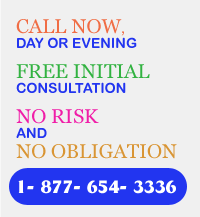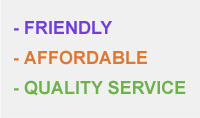| Responding to a Rejection in a Patent Application | ||
Rejected? Want to know more about what to do? Read on!
When a utility patent application is filed, examination on the merits follows in due course. The examination process involves a search of the prior art, and a decision by the patent examiner on allowability. The first such decision is supplied to the applicant by an official first Office Action on the merits. The great majority of first Office Actions involve a rejection of some or all of the claims. But, this is not the end of the process, but the beginning! A Response should be filed. What should go into the Response? The applicant, along with their patent attorney's help, should define what is different over the applied prior art reference(s). Then, suitable claim amendments should be made to clarify and/or emphasize those differences. And, suitable remarks should be provided in the Response which explain the differences over the applied prior art reference. The remarks ideally will also point out how the amendments to the claims clarify and emphasize those differences. Sometimes, there are other types of rejections and objections. These may be based on claim format, claim contents, objections to drawings or text, and so on. These can be handled in a similar way to that noted above. A good response will usually sound reasonable, and will always be polite. This is especially true when the patent examiner is believed to have erred. Also, a short yet clear response will meet with success more often that a long rambling response. This is not legal advice – for that you'd need to consult a registered U.S. Patent Attorney and discuss the specifics involved. The author is a patent attorney with over 28 years experience in patents and trademarks. For further information, please email at IP1lwyr@gmail.com, or call at 877-654-3336. |
Michael J. Foycik Jr., Esq.
US & INTERNATIONAL PATENT, TRADEMARK & COPYRIGHT SERVICES
PATENT ATTORNEY, 30 +YEAR EXPERIENCE AND FORMER PATENT EXAMINER
Home | About Us | Services | Fees | Resources | Articles | Contact
U.S. Patent | U.S. Trademark | U.S. Copyright | Support for International Client
Client Testimonials | PATENTS OBTAINED | TRADEMARKS OBTAINED | business center
Patent Application Quote Form | Trademark Application Quote Form | Copyright Application Quote Form | Free Initial Contact Form
© 2008-2017 InternationalParentService.com | All Right Reserved | Disclaimer
 Follow @PatentOffice
Follow @PatentOffice
U.S. Patent | U.S. Trademark | U.S. Copyright | Support for International Client
Client Testimonials | PATENTS OBTAINED | TRADEMARKS OBTAINED | business center
Patent Application Quote Form | Trademark Application Quote Form | Copyright Application Quote Form | Free Initial Contact Form
© 2008-2017 InternationalParentService.com | All Right Reserved | Disclaimer


